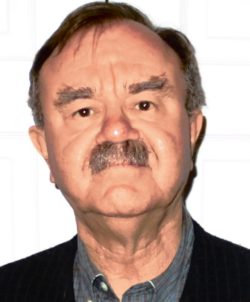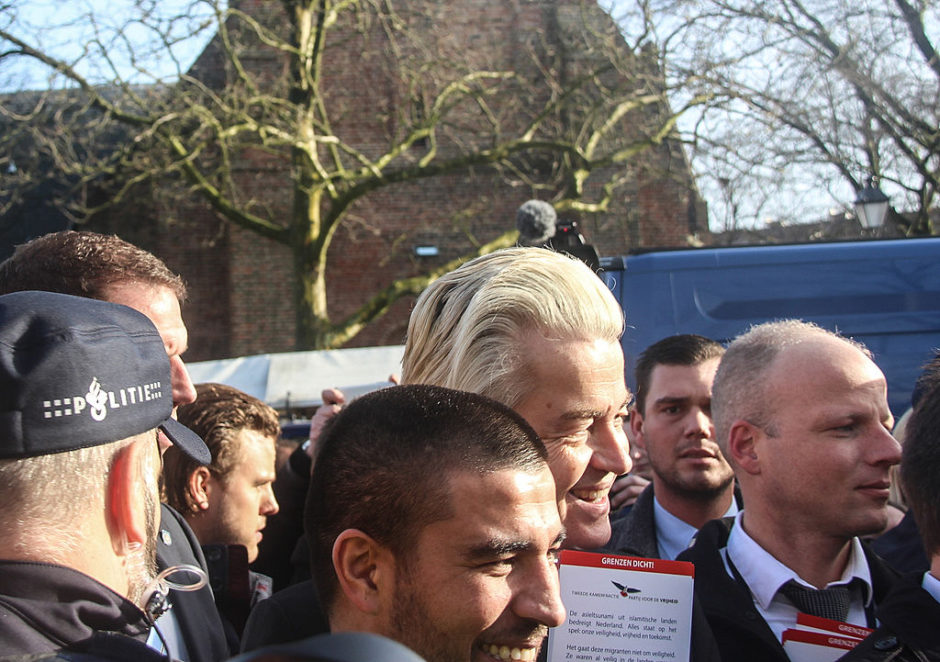Whatever one may think of his politics, one thing is certain: Geert Wilders certainly has the courage of his convictions.
A populist Dutch politician who’s the founder of the nationalist right-wing Party for Freedom (PVV), he is its leader in the House of Representatives, the lower assembly of the nation’s bicameral parliament.
His anti-Islam, anti-immigration rhetoric has propelled him to the top of Dutch polls. Some of them suggest the PVV is today the most popular party in the Netherlands, on track to win some 36 seats in the 150-seat lower house if elections were held now. It currently holds 12 seats in parliament.
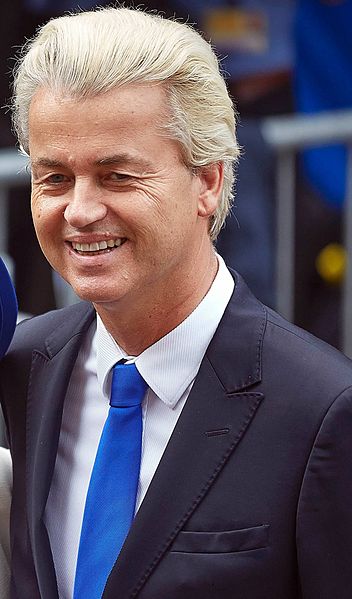
On the other hand, Prime Minister Mark Rutte’s centrist People’s Party for Freedom and Democracy (VVD) would get 25 seats compared with the 41 seats it won in the 2012 elections. Labor (PvdA) would get 13 seats against the 38 it won then. The two parties currently govern the country in a coalition.
An agent provocateur par excellence, Wilders in 2008 caused protests in the Muslim world for a short, online film which showed verses of the Qu’ran next to images of extreme violence and terrorism.
In 2011, Wilders was acquitted of hate speech, but he was less lucky this year. On December 9, he was convicted of inciting hatred by a Dutch court. However, he received no penalty or punishment.
The charge stemmed from a March 2014 incident during the country’s municipal elections in which Wilders urged his supporters to chant that they wanted fewer Moroccans in the Netherlands. Members of the Dutch Moroccan minority pressed charges.
Wilders denied any wrongdoing, saying the comments he made, which also included referring to Moroccans as “scum,” are protected as free speech. But the three-judge judge disagreed, finding that Wilders had overstepped the limits by specifically targeting Moroccans.
“Today, I was convicted in a political trial which, shortly before the elections, attempts to neutralize the leader of the largest and most popular opposition party,” Wilders responded. “They will not succeed.” He has promised to appeal.
“Support for the Party for Freedom is stronger than ever and keeps growing every day,” he added. “The Dutch want their country back.” Regardless of the verdict, “no one will be able to silence me.” He mocked the court, tweeting that it had convicted “half of the Netherlands.”
By convicting Wilders, a court criminalized freedom of expression for the first time in Dutch history, assert his defenders. It is not the right of a democracy to quibble about the content of articles or cartoons or to grant or withhold the right of thought and speech, they maintain.
Peter Kanne, a pollster with I&O Research, an independent Dutch polling organization, said the most recent data, released on November 25, indicated that the PVV had gained support and was currently about even with the VVD.
“A lot of people mentioned that they’re really getting angry that he is being accused and judged only for what he said,” Kanne explained. “They think that he said something that is true, and they’re very angry that a politician cannot say that in a society where there is freedom of speech.”
Last August, the PVV released its one-page manifesto ahead of the March 2017 legislative elections, in which it calls for the total “de-Islamification” of the Netherlands.
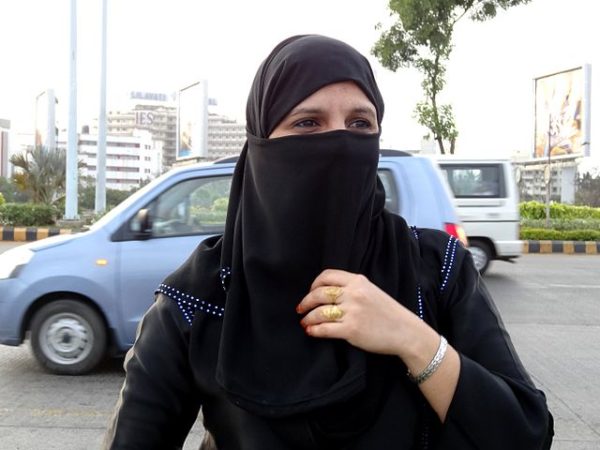
Under the PVV proposals, mosques, Islamic schools and asylum centers would be closed; the borders would be shut down with a blanket ban on migrants from Islamic countries; women would be forbidden from wearing a headscarf in public and the Qu’ran would be banned.
It also opposes dual citizenship, citing the case of Moroccan-born Khadija Arib, a PvdA deputy who is now speaker of the House of Representatives.
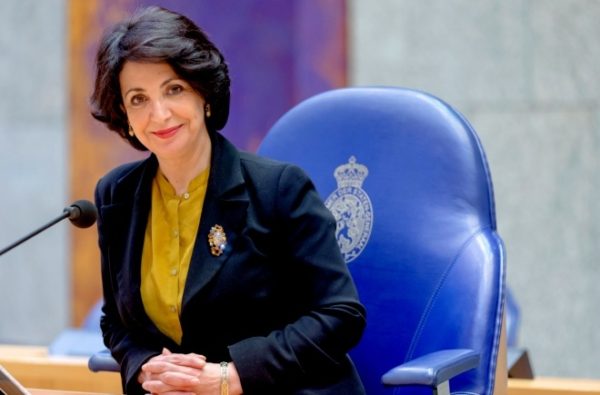
In 2007, already a member of parliament, she was serving on an advisory committee for the king of Morocco. When criticized, she replied, “I am not loyal to the Netherlands, I am not loyal to Morocco. I am loyal to my principles” — remarks that the PVV called shameful.
“I am very proud of the draft election manifesto,” Wilders has said. “Netherlands must again be ours.”
The party also pledged to withdraw from the European Union. Pleased with the “Brexit” vote in Britain two months earlier to leave the EU, he also called for a “Nexit” vote as soon as possible, as “the Dutch population deserves a referendum as well.”
If the PVV wins the most seats in the next election, Wilders could become prime minister, and he would then have to form a coalition government with other willing parties. But Rutte said that he would refuse to join such a coalition unless Wilders retracted his comments about Moroccans.
The PVV’s closest allies are Marine Le Pen’s National Front (FN) in France, the Flemish nationalist Vlaams Belang (VB) in Belgium, and the Freedom Party of Austria (FPO), all Eurosceptics.
The three parties all elected members to the European Parliament in May 2014, and a year later, along with the Italian Northern League (LN) and the Polish Congress of the New Right (KNP), they formed the Europe of Nations and Freedom (ENF) bloc. It comprises 39 of the chamber’s 751 members, four of them from the PVV.
Pressure from people like Wilders has had an effect. In November the Dutch government agreed to a partial ban of the wearing of full-face veils in public places such as schools, hospitals and on public transport.
The motion was approved by 132 members in the 150-seat house, including Rutte’s ruling VVD- PvdA coalition.
Rutte had claimed that the move “had nothing to do with religion,” but said it was necessary to “enforce values” of Dutch society.
However, this doesn’t go far enough as far as Wilders is concerned, because it does not ban wearing full-face coverings on the street. This is a man who continues to attack the country’s liberal political culture.
There are almost one million Muslims in the Netherlands, representing 5.8 percent of the population. They come primarily from Turkey and Morocco, where they were recruited as migrant laborers in the 1960s.
There are also substantial minorities from the former Dutch colonies of Indonesia and Surinam. Muslims are concentrated in the four largest cities of Amsterdam, Rotterdam, The Hague and Ulrecht.
“For the first time, Wilders has been condemned for racism and discrimination,” said Abdou Menebhi, one of the people who registered a complaint.
Lucien Nix, a lawyer for the Council of Moroccan Mosques in Holland, added that his clients would be discussing bringing a civil process. “Moroccan Dutch people have felt robbed of their dignity and a heightened sense of discrimination. We have waited for this for a long time.”
Henry Srebrnik is a professor of political science at the University of Prince Edward Island.
